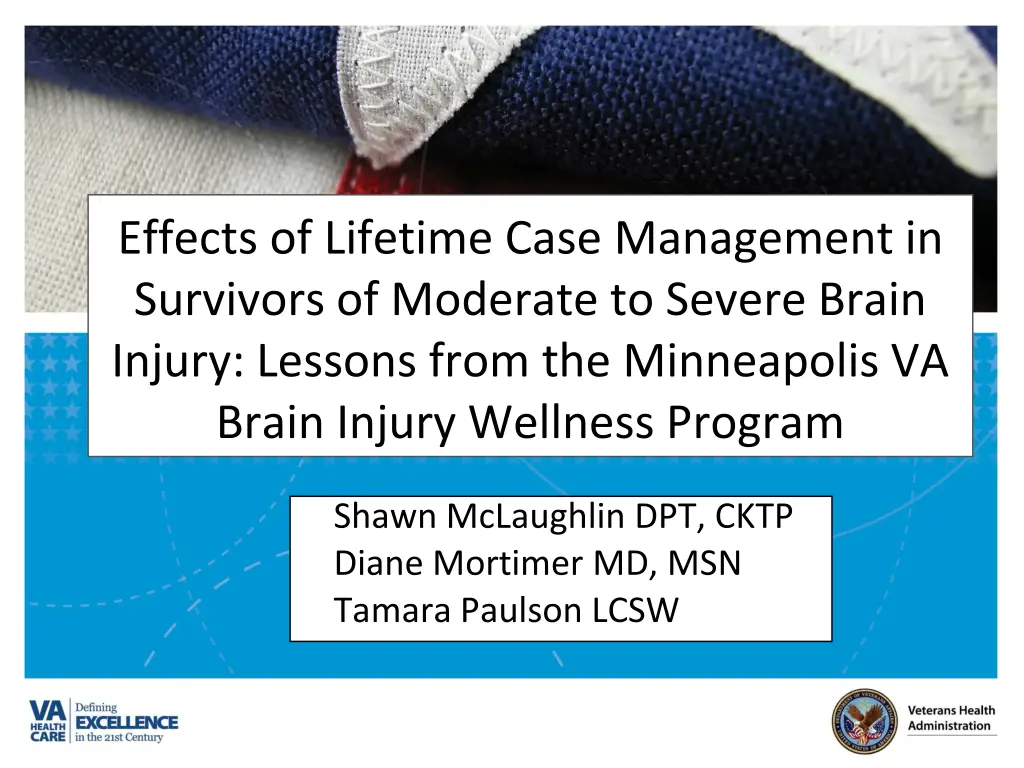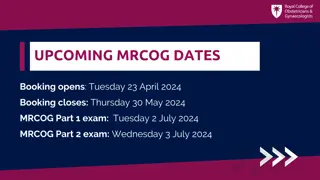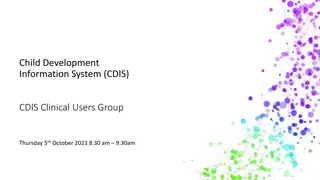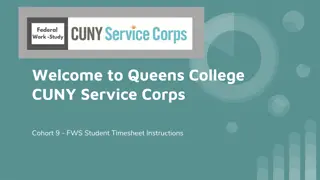
Lifetime Management of Moderate to Severe Brain Injury Survivors
Explore the effects of lifetime case management in survivors of moderate to severe brain injury through the Minneapolis VA Brain Injury Wellness Program. Learn about the biopsychosocial complications, interdisciplinary rehabilitation teams, and the continuum of TBI care. Understand the significant impact of brain injury, the need for long-term services, and the NIH consensus on TBI rehabilitation.
Download Presentation

Please find below an Image/Link to download the presentation.
The content on the website is provided AS IS for your information and personal use only. It may not be sold, licensed, or shared on other websites without obtaining consent from the author. If you encounter any issues during the download, it is possible that the publisher has removed the file from their server.
You are allowed to download the files provided on this website for personal or commercial use, subject to the condition that they are used lawfully. All files are the property of their respective owners.
The content on the website is provided AS IS for your information and personal use only. It may not be sold, licensed, or shared on other websites without obtaining consent from the author.
E N D
Presentation Transcript
Effects of Lifetime Case Management in Survivors of Moderate to Severe Brain Injury: Lessons from the Minneapolis VA Brain Injury Wellness Program Shawn McLaughlin DPT, CKTP Diane Mortimer MD, MSN Tamara Paulson LCSW
Disclosures We have no financial or commercial relationships to disclose VETERANS HEALTH ADMINISTRATION
Objectives 1) Discuss biopsychosocial complications of moderate to severe brain injury 2) Describe the Lifetime Case Management model 3) Describe an interdisciplinary rehabilitation team to manage chronic brain injury 4) Discuss potential drawbacks and benefits of this model of VETERANS HEALTH ADMINISTRATION care in both veterans and civilians with brain injuries 3
Part 1 Discuss biopsychosocial complications of moderate to severe brain injury. VETERANS HEALTH ADMINISTRATION
Significance In the US: As many as 50,000 people survive severe TBI every year There are an estimated 5.3 million severe TBI survivors The cost of care in the US is over 55 billion dollars per year Most common age of injury: 15-19 years old Brain injury is the leading cause of disability among children and young adults In Minnesota: There are over 100,000 TBI survivors At least one in four adults with TBI is unable to return to work one year after injury VETERANS HEALTH ADMINISTRATION => There is a large need for long-term services
Continuum of TBI care VETERANS HEALTH ADMINISTRATION
Significance/ background NIH Consensus Statement on Rehabilitation of People with TBI, 1998: people with TBI should have access to rehabilitation services through the entire course of their recovery, which may last for many years after the injury community-based, nonmedical services should be components of the extended care and rehabilitation available to people with TBI 7 VETERANS HEALTH ADMINISTRATION
Significance/ background Individuals who recover from moderate to severe traumatic brain injuries are at risk for a host of long-term problems Individuals require management of complex problems Re-injury and re-hospitalization are common but are likely partially preventable VETERANS HEALTH ADMINISTRATION 8
Significance/ background Aging after a brain injury (even many years later) includes special challenges, including: Decreased cognitive reserve Change in mobility Medical sequelae and new problems Care coordination issues VETERANS HEALTH ADMINISTRATION 9
Common medical complications Seizures/ post traumatic epilepsy Sleep problems Headaches Endocrine abnormalities Metabolic changes/ problems Nutrition issues Wound issues Pain, Musculoskeletal issues Hearing, vision and olfaction/ smell issues Balance and dizziness problems 10 VETERANS HEALTH ADMINISTRATION
Common medical complications Seizures/ post traumatic epilepsy late seizures (occurring more than a week after injury) and post traumatic epilepsy can occur in up to 30 % of people with severe TBI What s needed: Medication management Laboratory monitoring Coordinated care with neurology Discussions about driving and overall safety VETERANS HEALTH ADMINISTRATION 11
Common medical complications Sleep problems: Occur in more than 35% of patients after TBI Have complex bidirectional relationship with TBI, neuro- psychiatric disturbances and fatigue Sleep apnea may be a comorbidity Medications can also contribute What s needed: Collaboration with sleep medicine experts Appropriate medication management 12 VETERANS HEALTH ADMINISTRATION
Common medical complications Post traumatic headaches: Tend to have contributions from migraine, tension and cervicogenic Analgesic/ Withdrawal headaches also occur Can occur in more than 50% of patients with TBI What s needed: Effective medication management Activity and physical therapy programs Education 13 VETERANS HEALTH ADMINISTRATION
Common medical complications Endocrine abnormalities Metabolic changes/ problems Fertility issues or Sexual dysfunction Nutrition changes What s needed: Laboratory monitoring Medication management Dietary/ nutrition advice Collaboration with endocrinology team 14 VETERANS HEALTH ADMINISTRATION
Common medical complications Wound issues Pain Musculoskeletal issues What s needed: Expert nursing and wound care Appropriate medication and activity programs Coordinated care with other providers 15 VETERANS HEALTH ADMINISTRATION
Common medical complications Visual acuity changes Visuomotor abnormalities Olfaction/ smell disorders Issues with balance and dizziness Hearing problems What s needed: Multi-specialty evaluation and treatment Medication management Coordinated therapy approaches 16 VETERANS HEALTH ADMINISTRATION
Other sequelae Impaired mobility Abnormal cognition Altered executive function Neuropsychiatric/ behavioral symptoms Speech and language problems VETERANS HEALTH ADMINISTRATION
TBI is not static These issues are likely to change over time: As patients age As new health problems develop As new medications are started TBI is appropriately classified as a chronic, ongoing problem VETERANS HEALTH ADMINISTRATION
Decreased lifespan Following moderate to severe TBI, life expectancy can decrease by nearly a decade What s needed: Vigilant care VETERANS HEALTH ADMINISTRATION
Potential late effects of TBI Cognitive impairments Movement disorders What s needed: Vigilance, monitoring Collaborative, coordinated care VETERANS HEALTH ADMINISTRATION
Risk of subsequent TBI Following mild to moderate TBI, the risk of subsequent TBI increases by over 50% What s needed: Prevention efforts Education VETERANS HEALTH ADMINISTRATION
Mental health sequelae Substance abuse 30-50 % of patients hospitalized for TBI test positive for alcohol Individuals who suffer an alcohol-related TBI are at higher risk for subsequent alcohol-related TBI Other substances, drug addiction likely play a role in TBI What s needed: Concerted assessment/ prevention efforts VETERANS HEALTH ADMINISTRATION
Mental health sequelae Depression and Anxiety Estimated to occur in approximately 35% of patients with mild TBI and nearly 50% of patients with severe TBI Associated with increased risk for suicide compared with people without TBI What s needed: Coordinated assessments and treatment plan VETERANS HEALTH ADMINISTRATION
Mental health sequelae Impaired community reintegration: Participation in pre-injury activities also affected Can both contribute to and result from other mental health issues Can interfere with optimal functioning of the individual and family post-injury What s needed: Mental health services Recreation therapy and other therapies may assist VETERANS HEALTH ADMINISTRATION
Legal issues Potential for high risk, including criminal behavior: History of TBI is common among incarcerated individuals Estimates of inmates with a history of TBI ranges from 10% to more than 25% What s needed: Appropriate treatment of legal and ethical issues Some individuals require advocacy efforts VETERANS HEALTH ADMINISTRATION
Community re-entry Individuals may need assistance returning to work or school. What s needed: Assistance with vocational rehabilitation, community participation VETERANS HEALTH ADMINISTRATION
Vocational rehabilitation Vocational rehabilitation programs allow TBI survivors to return to work or productive activities earlier than without intervention Less unemployment, less dependence, less mental health issues Supported employment: employment specialist provides training, counseling and support at a job site Can lead to subsequent skills generation and increased productivity VETERANS HEALTH ADMINISTRATION
Community re-entry/ participation Return to driving Return to family roles Return to community activities Possible interventions: Drivers rehabilitation Assistance with re-aligning family or community roles Recreation therapy activities VETERANS HEALTH ADMINISTRATION
Family and caregiver issues Caregivers often experience emotional stress They may also deal with physical challenges Family roles may be rearranged These roles may have to change again over time VETERANS HEALTH ADMINISTRATION
Social issues High risk for unstable housing and homelessness: More than 40% of homeless adults in the US are estimated to have had a TBI involving loss of consciousness What s needed: Coordinated efforts VETERANS HEALTH ADMINISTRATION
Care needs over time VETERANS HEALTH ADMINISTRATION
Part 2 Describe the Lifetime Case Management model and its implementation by the Minneapolis VA Brain Injury Wellness Program s interdisciplinary rehabilitation team VETERANS HEALTH ADMINISTRATION
Case management Case management can involve: Providing coordination of care among multiple providers Having in-house services to prevent or address crisis situations Making referrals or consults for medical situations VETERANS HEALTH ADMINISTRATION
Case management Case management seems especially beneficial: For individuals who have difficulty initiating or accessing care or services on their own In situations where there are multiple medical needs, services, and providers In chronic and potentially progressive diseases VETERANS HEALTH ADMINISTRATION
Case management Programs where case management has been helpful: Chronically ill homeless adults: case management reduced hospitalizations and emergency department visits Intensive case management program for older adults (Evercare Program of United Health): Case management reduced numbers of hospitalizations and re-hospitalizations Individuals who require vocational training: Increased numbers of individuals successfully returned to work VETERANS HEALTH ADMINISTRATION
Case management in chronic illness A number of research studies have chronicled case management in chronic illness: There have been significant benefits for populations who had case management services versus those who did not VETERANS HEALTH ADMINISTRATION
Case management in chronic illness Chronic illnesses where case management has been beneficial: Depression Diabetes mellitus Heart failure VETERANS HEALTH ADMINISTRATION
Continuity of care Continuity of care: Achieved by bridging discrete elements in the care pathway Goes across different episodes, interventions by different providers, and changes in illness status over time Patients changing value systems also need to be considered In optimal models where continuity of care exists: Care is connected and coherent VETERANS HEALTH ADMINISTRATION
Building relationships Providers of case management services form an vital relationship with the person being served The individual provider of case management services can have a profound impact on the success or failure of the services The optimal relationship is built on reliability and trust VETERANS HEALTH ADMINISTRATION
Where is case management occurring? Insurers Accountable care organizations Some states have small programs Community agencies Some clinics VETERANS HEALTH ADMINISTRATION
Obstacles to case management Individuals may switch insurers Individuals may move Short term case management programs may expire Individuals may switch providers or health care systems Individuals may stop participating in services VETERANS HEALTH ADMINISTRATION
Successful case management includes: A method of identifying the target population A trained professional assuming a sense of responsibility, authority, and accountability for assessing and ensuring the ongoing delivery of appropriate care Financial incentives to substitute less costly care where possible Knowledge about how to mobilize and use resources appropriately VETERANS HEALTH ADMINISTRATION
Case management in TBI Case Management makes sense because: - TBI can be a chronic problem - There are significant costs and resources involved - Providers from multiple disciplines administer care - Patients may need assistance initiating care or coordinate care on their own - Complex medication management may be needed - There may be social issues as well VETERANS HEALTH ADMINISTRATION
TBI Services- on Waiver (vary by state) Case management Residential rehabilitation Transitional living Independent living skills training and development Adult day care and/ or treatment Home and community support services (supervision, companionship) Psychological or behavioral Employment rehabilitation Intensive behavioral support/ crisis support Home modifications Specialized medical equipment and supplies/ assistive technology Nonmedical transportation Respite care Personal care/ attendant services Skilled nursing Home-delivered meals VETERANS HEALTH ADMINISTRATION counseling
Brain Injury Wellness Clinic The clinic serves approximately 300 Veterans with moderate to severe brain injury (traumatic and non- traumatic) who live locally Participants continue in the clinic long-term Overriding goals of the program: prevention and support VETERANS HEALTH ADMINISTRATION
Outpatient TBI Clinic Program history: We ve had a dedicated BI team since 1984 We ve had a BI interdisciplinary clinic since 1988 Our program developed into its current form in 2007 This program is unique within the VA Healthcare System VETERANS HEALTH ADMINISTRATION
Program rationales/ goals Facilitate coordination of care across multiple providers, medical treatments, and systems Prevent foreseeable untoward events Identify and address complications as early as possible Provide support in psychosocial situations like need for financial, housing and social resources Construct and maintain effective and collaborative team VETERANS HEALTH ADMINISTRATION
How does it work? Most participants remain in the program and receive case management services for life Every participant has an assigned core team, including: Rehabilitation Physician or Nurse Practitioner Social Work Case Manager Nurse Case Manager Participant or caregiver can contact this team directly with questions/needs Face to Face, phone or emails/ secure message VETERANS HEALTH ADMINISTRATION
Visits with providers Core Team Involvement (MD, RN, SW) Community Visits; phone and medical center appointments Participants have, at a minimum, annual check in visits During crisis-type situations, participants interact with team as needed. VETERANS HEALTH ADMINISTRATION -This can be daily or weekly in some situations
Needs are addressed by team members Participants have heterogeneous needs Needs change over time Some needs are intense for one week while others are not present for several years Participants see providers and therapists as needed over the course of time Interdisciplinary team discussions are held regularly VETERANS HEALTH ADMINISTRATION






















